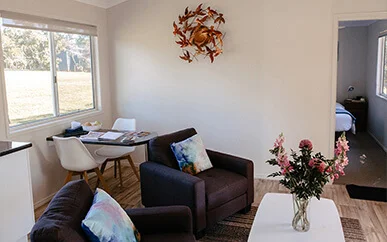Are you a recovering addict who just finished a treatment program for drug or alcohol addiction? Do you want to know how to maintain your recovery and avoid relapse? If so, you’ve come to the right place.
After your initial treatment is done, what comes next is ‘addiction aftercare’. It reduces your risk of falling back into addictive behaviours and keeps you moving forward on the road to a drug or alcohol-free life. Read on to find out more about how addiction aftercare supports you from relapse and why it’s so important for recovery.
What is relapse?
When you’re recovering from a drug or alcohol addiction, you may experience a relapse (or multiple relapses). This occurs when you stop maintaining your goal of decreasing or avoiding drug or alcohol use and return to previous levels of use. It may take just two attempts, or five or more attempts, before you successfully achieve your goal.
There are many things that could cause you to relapse, such as pre-existing emotional, mental and physical health issues, work problems, social problems (eg relationship challenges), and economic problems (eg financial hardship).
The good news is that you can prevent relapse with ‘addiction aftercare’.
What is addiction aftercare?
Once you’ve completed a treatment program for your drug or alcohol addiction, you can continue to receive treatment to prevent you from relapsing and help you remain sober. This treatment is referred to as addiction aftercare, and it expands upon the coping strategies you learnt during rehabilitation. It differs however, because there will be less frequent contact with your treatment personnel; so your ability to maintain your own sobriety will depend on your self-sufficiency, individual determination, and hard work.
Addiction aftercare can last from a few months to a lifetime, depending on your needs and disposition when you finished the initial treatment. If you wish to receive addiction aftercare following your initial treatment, your doctor or mental health professional can work with you to write an ‘aftercare plan’.
What are the essential components of an aftercare plan?
Your aftercare plan will be based on your needs, concerns, and lifestyle. But successful aftercare plans usually include the following components:
- Outpatient treatment program – This involves weekly or regularly scheduled follow-up meetings with a counsellor or therapist, in which you attend group counselling or individual therapy. They help build your social skills and give you additional coping tools or techniques to avoid relapse. You’ll learn how to:
o Identify and manage the triggers that cause you to take drugs or alcohol (eg depression or marriage conflict)
o Cope with your cravings
o Evaluate the potential outcome of a relapse before taking drugs or alcohol
o Keep a lapse (a brief return to drug or alcohol use followed by a return to your recovery goals) from turning into a relapse.
- Self-help groups – Alcoholics Anonymous and Narcotics Anonymous are self-help groups where recovering addicts attend regular face-to-face or online meetings. Social support offered by peer discussion can help you sustain a drug and alcohol-free lifestyle.
- Supportive friends and family – You can turn to them when you start to have cravings for drugs or alcohol. They’ll act as your support against relapse and ensure you stay clean.
- Controlled living environment – If your home doesn’t provide a healthy environment that supports sobriety, you can stay at a halfway house or sober living home. These are structured living settings that offer a safe, substance-free environment, which helps you to abstain from drugs and alcohol.
- Healthy safe-care practices – By exercising regularly, eating nutritious food, and getting enough sleep and rest, you can curb your drug or alcohol cravings. Engaging in positive activities can also keep your mind off drugs and alcohol, such as volunteer work (eg working with kids) or your hobbies (eg writing).
It’s important that you follow your aftercare plan carefully to reduce your risk for relapse and help you stay sober.
Why you should consider addiction aftercare
Here are four reasons why addiction aftercare is the next step you should take after you’ve finished your initial treatment:
- Your long-term addiction recovery rate significantly improves, considering those who don’t go through addiction aftercare have a relapse rate of about 50%.
- You can transition more easily from a treatment-centric life to a normal life with work, school, and other responsibilities, and not slip back into drug or alcohol abuse.
- You’ll learn coping skills that actually work, since addiction aftercare equips you to handle trigger points that could otherwise lead you to relapse.
- You can still receive support following your initial treatment. This considerably reduces your risk of relapse, as the highest risk for relapse is in the first 90 days after treatment.
Need addiction aftercare?
Lifelong recovery is possible with addiction aftercare. When you have an aftercare plan and stick to it, this not only makes it easier for you to transition from treatment back to daily life, it also prevents relapse of your drug or alcohol addiction. And by breaking the cycle of addiction, you can get a new start on life.
Palladium Private is a private mental health provider that tailors programs to their clients in order to facilitate their rehabilitation process. To find out how Palladium Private helps you through your complete rehabilitation process, call 1300 573 095 or click here.



